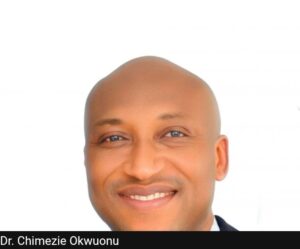
Lara Adejoro The Federal Government has disbursed nearly N50bn directly to Primary Health Centres across the country through the Basic…..CONTINUE FULL READING>>>>>
Idowu Abdullahi The Federal Government has concluded plans to unveil the RenewHER initiative as part of efforts to prioritise women’s…
Sodiq Ojuroungbe A nephrologist at the Federal Medical Centre, Umuahia, Dr. Chimezie Okwuonu, has expressed concern over the alarming number…
Sodiq Ojuroungbe
A nephrologist at the Federal Medical Centre, Umuahia, Dr. Chimezie Okwuonu, has expressed concern over the alarming number of kidney patients abandoning life-saving transplantation due to financial and donor-related constraints.
Delivering a paper at the 6th Biennial Scientific Conference of the Transplant Association of Nigeria, held in Ibadan, Oyo State, Okwuonu revealed that only 12 per cent of patients who required kidney transplantation at the Umuahia centre were able to undergo the procedure.
He added that a staggering 88 percent could not proceed for various reasons, with a lack of funds being the primary reason.
According to him, a review of patients at FMC Umuahia showed that out of 93 individuals evaluated for kidney transplants, only 11 successfully received new kidneys.
The nephrologist, who is also the Chief Medical Director of Abia State Specialist Hospital and Diagnostic Centre, explained that the remaining 82 people could not access transplantation, with 40 per cent hindered by the inability to raise the required funds, while 20 per cent were shut out due to donor incompatibility.
He added that other factors, which include frail health conditions of recipients (14 per cent), old age above 70 years (8 per cent), and infectious diseases such as HIV and hepatitis B or C, accounted for 10 per cent of rejections.
The Fellow of the International Society of Nephrology further said that about 3 per cent of patients were lost to follow-up, while 3 per cent were classified under other reasons.
The nephrologist lamented that despite impressive survival rates recorded from kidney transplantation in Nigeria, the majority of patients remain excluded due to the harsh realities of cost and limited donor availability.
“At FMC Umuahia, transplant survival estimates stood at 90 per cent within the first year and 65 per cent after five years. This is encouraging compared to global standards,” he stated.
Speaking on the topic, ‘The role of social service providers in financing organ transplantation’, the kidney specialist stressed that social service providers have a major role to play in bridging the financial gap that continues to deny patients access to treatment.
Okwuonu, who is also the pioneer transplant nephrologist in Southeast Nigeria, noted that social workers help patients and their families navigate complex financial demands through counselling, insurance guidance, resource mobilisation, fundraising support, and advocacy.
He added that they also play an indispensable role in promoting organ donation by educating the public, addressing cultural concerns, and encouraging families to discuss donor decisions.
“The non-surgical aspects of transplantation are complex, but social workers are key to ensuring patients are not shut out because of cost. Without their intervention, many patients will simply abandon treatment and face the risk of death,” he said.
The physician called for increased government support, better insurance coverage, and stronger collaboration between medical institutions and social service providers, stressing that without deliberate financial interventions, more patients would continue to die waiting for transplants they cannot afford.
Earlier in his remarks, the President of the Transplant Association of Nigeria, Prof. Jacob Awobusuyi, described the financial burden of organ transplants as a “silent crisis” that is keeping critical care out of reach for most Nigerians.
He noted, “The hope of a lifesaving transplant remains dimmed for many of our patients, not because of a lack of expertise or facilities, but because of the heavy financial burden it imposes.
“Thousands still languish on dialysis with little hope of moving forward.”
Awobusuyi noted that although Nigeria has made progress in transplant capability, with kidney transplants now performed in several centres and growing interest in liver procedures, accessibility remains a major challenge due to cost.
The TAN president urged government and development partners to prioritise transplant care in the national health agenda, proposing models that include insurance schemes, public-private partnerships, and philanthropic support.
“This is a defining moment for our profession. Let this conference not just be where we talk but where we act,” he charged delegates.
Also speaking, the Chairman of the Local Organising Committee, Dr. Augustine Takure, said data from the last TAN conference showed that only 0.01 per cent of kidney transplants were conducted in state-owned health facilities, with 88 per cent done in private hospitals and 11.3 per cent in federal centres.
“These figures are deeply concerning. They are what inspired our current focus on sustainable financing. We must bring both public and private stakeholders to the table to address this,” Takure said.
He added that 24 haematopoietic stem cell transplants were recorded across Nigeria in the past year, with the vast majority also conducted in private facilities.
“We must explore viable partnerships and financing structures that improve access,” he stressed.
The conference, themed “Financing Organ Transplantation in Nigeria,” brought together top clinicians, policymakers, academics, and international stakeholders to discuss sustainable funding models and access to equity in the transplant sector.
The sub-theme of the conference, “Paediatric Organ Transplantation in Nigeria”, also highlighted the country’s poor transplant outcomes in children, a concern experts say requires urgent attention….CONTINUE FULL READING>>>>>


